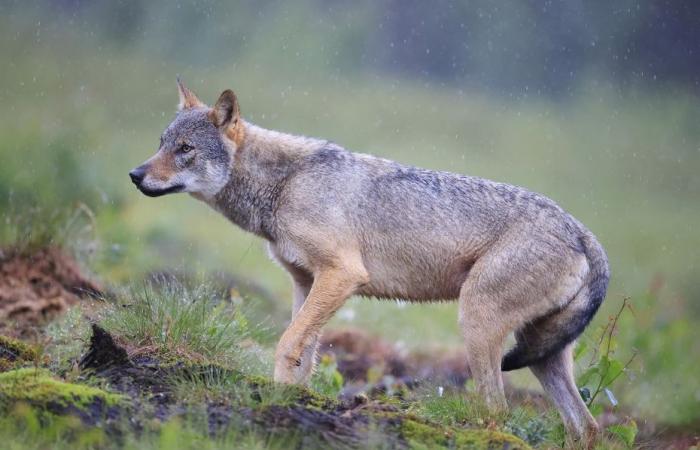The signatory countries of the Berne Convention are meeting this week in Strasbourg. The protection status of the predator in Europe could be revised downwards.
The essentials of the day: our exclusive selection
Every day, our editorial team reserves the best regional news for you. A selection just for you, to stay in touch with your regions.
France Télévisions uses your email address to send you the newsletter “Today’s essentials: our exclusive selection”. You can unsubscribe at any time via the link at the bottom of this newsletter. Our privacy policy
Wolves in the crosshairs of farmers and European authorities. With each attack, the agricultural world takes a dim view of the predator, which is a species today strictly protected in Europe.
In France in particular, its “slaughter” can only be done after attacks on herds and according to very specific criteria. Despite these regulatory shots, the tone rises regularly.
In Haute-Saône, dozens of farmers deplored attacks on their animals at the beginning of November and denounced the refusal of state services to carry out defensive shots.
The president of the Chamber of Agriculture in the neighboring department of Doubs, for his part, called on breeders at the end of September to arm themselves and illegally “kill” wolves, in order to protect their herds.
At the beginning of November in Pontarlier in Haut-Doubs, farmers placed a bovine corpse in front of the sub-prefecture to denounce the 68 losses in their livestock in three years.
The wolf benefits from protection thanks to the Berne Convention (46 member states of the Council of Europe, 4 African countries). This international agreement poses constraints for nature conservation.
In Europe, the wolf was initially listed in Appendix II of the Convention, classifying it as strictly protected species. This results in a ban on killing, capturing, detaining or intentionally disturbing wolves, especially during their breeding season. Exceptions were possible in certain circumstances such as preventing significant damage to livestock.
In September 2024, the European Union proposed moving the wolf from Appendix II to Appendix III, changing it from a “strictly protected” to “protected” species. The decision was adopted on September 25, 2024. Some see it as a somewhat personal desire of the President of the European Commission. Last year, Ursula von der Leyen spoke about “real danger” from wolves “for livestock and, potentially, for humans”. Some suspect she has a grudge against the canine since one of them killed a pony on her property in northern Germany.
Tuesday, December 3 in Strasbourg, the signatory countries of the Berne Convention will have to decide in turn on this change in protection status for the wolf. If the text is adopted, it will enter into force three months later in countries that did not raise objections during the vote.
This would mean that we are generalizing to Europe what France already practices by derogation, namely the possibility of shooting wolves according to rules to be determined nationally.
Yann Laurans, WWF-France program directorAFP
The European Union argues on the basis of “an in-depth analysis of the status” of the carnivore on its territory, reports a growing population, reaching 20,300 individuals in 2023, for the most part in the Balkans, the Nordic countries, in Italy and Spain.
According to Brussels, this expansion has led to difficulties “from the point of view of coexistence with human activities, in particular due to the damage caused to livestock, which has reached significant levels”.
According to WWF-France program director, Yann Laurans, “the removal of wolves from herds is in reality negligible, of the order of one percent” of the total attacks in Europe, other animals also attack livestock.
“The wolf population, wrongly judged as healthy by the European Commission, is in reality still quite fragile,” believes Yann Laurans.
“By weakening the species which is the summit of the European ecological system, we risk weakening the overall health, already quite weak, of the European ecosystem”he warns.
The estimate for the number of wolves in France in 2023 stood at 1,003 individuals, down 9% over one year. Around 20% of the population is slaughtered each year. The quota for killing wolves authorized in 2024 in France stands at 209 wolves. As of December 1, 201 were killed, according to the No Wolf Facebook page which regularly relays the voice of farmers.






